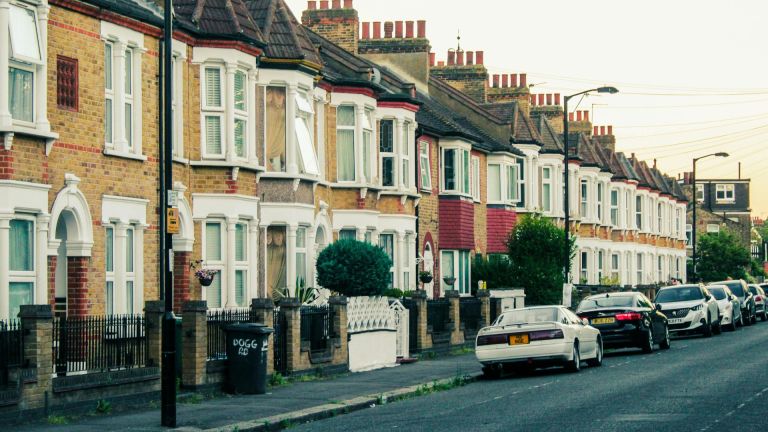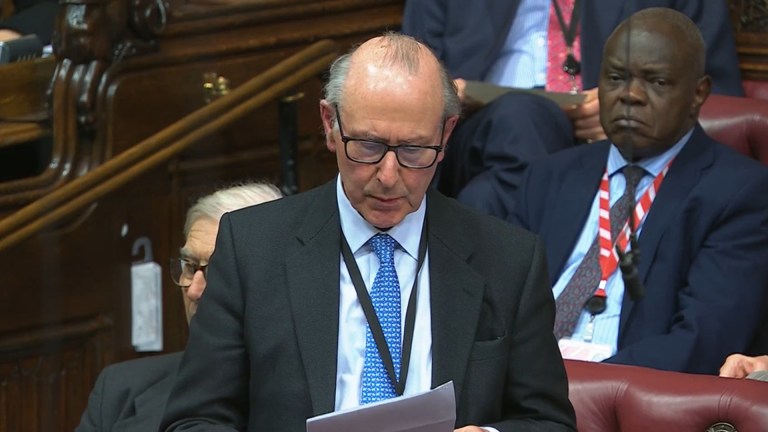“We will force private landlords to improve the energy efficiency of their properties, investing in measures like insulation and double glazing to keep tenants warmer while cutting bills.
“Underpinned by plans for a new strategy for tackling fuel poverty, we are moving at pace to rebuild Britain and put more money in the pockets of working people.”
Energy bills have skyrocketed in recent years following the cost of living crisis, with ministers blaming the over-reliance on international gas markets for driving up prices – particularly as war has raged in Ukraine.
Private renters have been particularly vulnerable with 48% of homes in the sector at EPC C rating.
Government ministers have now launched a consultation for tenants and landlords to set out how to ensure all properties in the sector hit that mark by 2030.
They are seeking views on offering landlords a choice on how to meet energy efficiency targets. The proposals would see landlords meet a fabric standard through installing measures such as loft insulation, cavity wall insulation or double glazing, before moving on to a range of other options including batteries, solar panels and smart meters.
There are also plans for a maximum cap of £15,000 per property for landlords, with support currently available from the Boiler Upgrade Scheme and Warm Homes: Local Grant, which begins delivery this year. Although the government is also proposing an affordability exemption, which would lower the cost cap to £10,000 and could be applied based on lower rents or council tax band.
The average cost to landlords of complying with the proposals to upgrade their properties is estimated to be between £6,100 and £6,800 by 2030, the government said.
Deputy prime minister and housing secretary Angela Rayner said the government is aiming to “right the wrongs of the past” while energy secretary Ed Miliband added that tenants have been “disregarded and forgotten” in recent years.
The government is also aiming to improve the state of private rented homes through the Renters’ Rights Bill, which will introduce a decent homes standard and extend Awaab’s Law to the private rented sector after it comes into force in the social housing sector this October.
The bill received its second reading in the House of Lords earlier this week.
Reacting to Labour’s announcement, Tom Darling, director of the Renters’ Reform Coalition, said: “One in five privately rented homes don’t meet the decent homes standard, and with so many renters in fuel poverty, it’s vital that homes are made cheaper and easier to heat. We welcome the government’s energy efficiency plans and encourage all renters to respond to this consultation.”
“However, these plans must take place alongside amendments to the Renters’ Rights Bill to protect renters from eviction and rent rises where public money has been used to improve a property. If renters start losing out as a result of the Warm Homes Plan, then uptake could nosedive, leaving the government’s worthy ambitions in ruins.”
Ben Beadle, chief executive of the National Residential Landlords Association, said a “realistic timetable” is needed if the millions of private homes that currently do not meed the government’s proposed standards are to be improved.
“We all want to see rented homes as energy efficient as possible, but that will require a realistic plan to achieve this,” he said.
“The chronic shortage of tradespeople to carry out energy efficient works needs to be addressed, alongside a targeted financial package to support investments in the work required as called for by the Committee on Fuel Poverty and Citizens Advice.”
Do you have a story to tell or opinions to share about this? Get in touch and tell us more. Big Issue exists to give homeless and marginalised people the opportunity to earn an income. To support our work buy a copy of the magazine or get the app from the App Store or Google Play.
Big Issue is demanding an end to extreme poverty. Will you ask your MP to join us?









